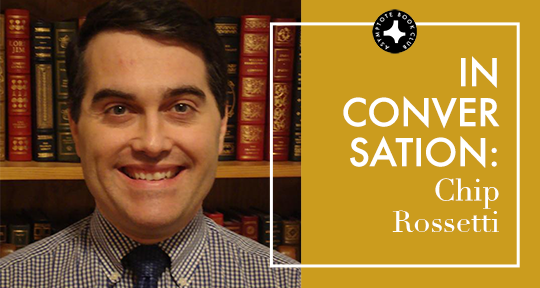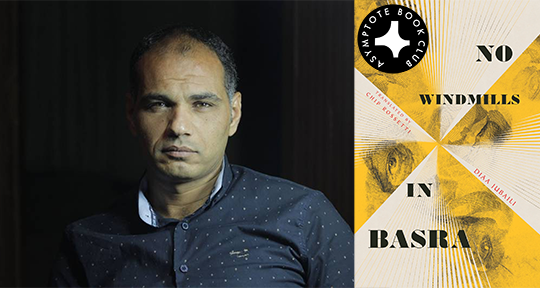For the month of September, our Book Club selection Diaa Jubaili’s No Windmills in Basra, a visionary collection of short fiction that works from Iraq’s expansive folktale tradition to create vivid, surprising portrayals of the country’s complex present. In precise, yet fantastic prose, Jubaili jumps rope with the tight limits of short story to range from humour to darkness, from imagination to reality, from violence to tenderness. In the following interview, Laurel Taylor speaks to the translator of No Windmills in Basra, Chip Rossetti, on formalism, intertextuality, and the use of symbolism in Jubaili’s work.
The Asymptote Book Club aspires to bring the best in translated fiction every month to readers around the world. You can sign up to receive next month’s selection on our website for as little as USD15 per book; once you’re a member, join our Facebook group for exclusive book club discussions and receive invitations to our members-only Zoom interviews with the author or the translator of each title.
Laurel Taylor (LT): You’ve mentioned that Jubaili’s work was the first flash fiction you had read in Arabic, and also that the genre is still very new in Arabic. To what extent are you thinking about formalism as you translate something that is a known genre in English but perhaps less so in Arabic?
Chip Rossetti (CR): It’s interesting, as the short story’s both a very old and a very new phenomenon in Arabic. The earliest form of prose narrative in Arabic is the khabar, which is a very short sort of text. One example of its earliest use is the hadith, accounts of things the Prophet Muhammad once said or did, and a khabar could be a paragraph long, or a few sentences. Khabar were always preceded by a citation of its oral sources, such as “I heard this account from someone, who heard it from somebody else who heard it from somebody else.” So there’s a chain of transmission, and that’s what scholars always point to as the very core, the oldest examples of prose texts in Arabic. Of course, that’s fourteen hundred years ago. That’s a far cry from modern short stories.
There are, as I think I mentioned in the introduction to No Windmills in Basra, some other practitioners of flash fiction in Arabic—notably the Syrian author Zakariya Tamer who is, I think, in his nineties now. He’s also done very short stories, but the contemporary boom in flash fiction started making its way into Arabic much more recently than in English. The challenge, as I understand it—and I’ve tried my hand at writing English-language flash fiction—is the intensity required of the writer. The challenge for a translator of flash fiction is to mirror that same intensity in the translation. Obviously, every word counted for Jubaili when he wrote it in the original, so I’ve tried to make sure I’m keeping that emotional punch in a way that inevitably brings you to each story’s end: an ending that comes sooner than you might expect, but is still somehow satisfying. READ MORE…


